Effective Robotics Programming with ROS. Find out everything you need to know to build powerful robots with the most up-to-date ROS - Third Edition Anil Mahtani, Luis Sánchez, Enrique Fernandez Perdomo
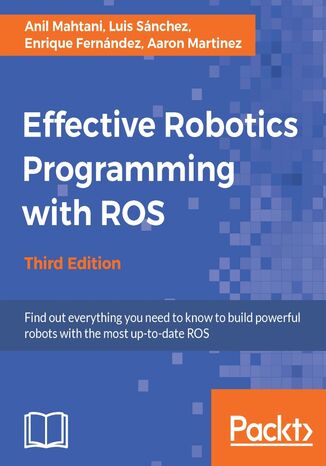



- Autorzy:
- Anil Mahtani, Luis Sánchez, Enrique Fernandez Perdomo
- Wydawnictwo:
- Packt Publishing
- Ocena:
- Stron:
- 468
- Dostępne formaty:
-
PDFePubMobi
Opis
książki
:
Effective Robotics Programming with ROS. Find out everything you need to know to build powerful robots with the most up-to-date ROS - Third Edition
This book is packed with hands-on examples that will help you program your robot and give you complete solutions using open source ROS libraries and tools. It also shows you how to use virtual machines and Docker containers to simplify the installation of Ubuntu and the ROS framework, so you can start working in an isolated and control environment without changing your regular computer setup.
It starts with the installation and basic concepts, then continues with more complex modules available in ROS such as sensors and actuators integration (drivers), navigation and mapping (so you can create an autonomous mobile robot), manipulation, Computer Vision, perception in 3D with PCL, and more. By the end of the book, you’ll be able to leverage all the ROS Kinetic features to build a fully fledged robot for all your needs.
Wybrane bestsellery
Packt Publishing - inne książki
Dzięki opcji "Druk na żądanie" do sprzedaży wracają tytuły Grupy Helion, które cieszyły sie dużym zainteresowaniem, a których nakład został wyprzedany.
Dla naszych Czytelników wydrukowaliśmy dodatkową pulę egzemplarzy w technice druku cyfrowego.
Co powinieneś wiedzieć o usłudze "Druk na żądanie":
- usługa obejmuje tylko widoczną poniżej listę tytułów, którą na bieżąco aktualizujemy;
- cena książki może być wyższa od początkowej ceny detalicznej, co jest spowodowane kosztami druku cyfrowego (wyższymi niż koszty tradycyjnego druku offsetowego). Obowiązująca cena jest zawsze podawana na stronie WWW książki;
- zawartość książki wraz z dodatkami (płyta CD, DVD) odpowiada jej pierwotnemu wydaniu i jest w pełni komplementarna;
- usługa nie obejmuje książek w kolorze.
Masz pytanie o konkretny tytuł? Napisz do nas: sklep@helion.pl
Książka drukowana


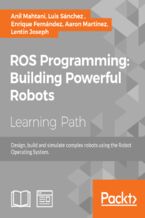

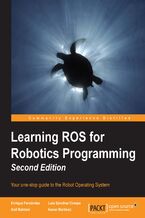

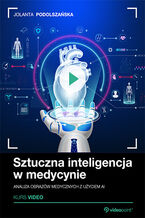
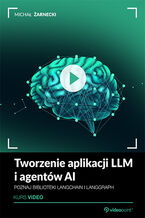
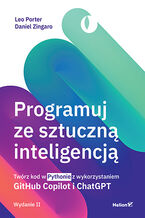

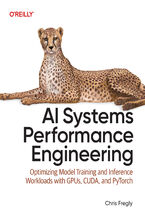
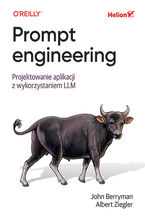
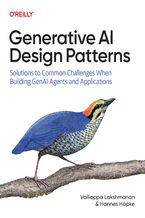










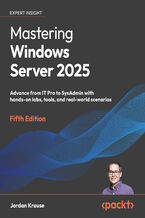
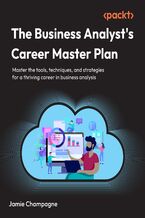
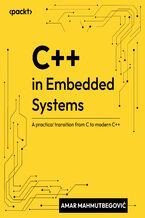
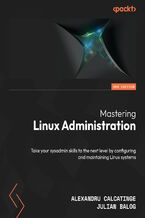
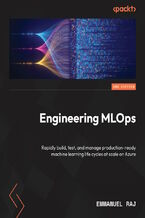
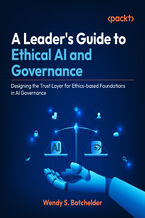
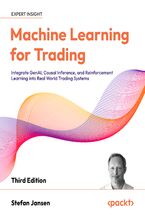
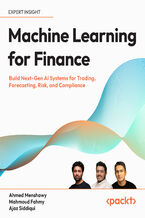



Oceny i opinie klientów: Effective Robotics Programming with ROS. Find out everything you need to know to build powerful robots with the most up-to-date ROS - Third Edition Anil Mahtani, Luis Sánchez, Enrique Fernandez Perdomo
(0)